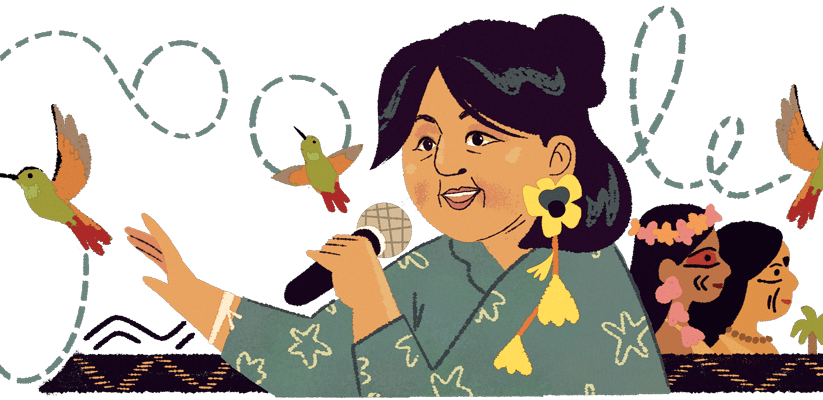Rosane Mattos Kaingang, an Indigenous Brazilian activist who worked relentlessly to fight for Native rights, is the focus of today’s Google Doodle. She helped the Council of Human Rights (CNDH) examine human rights crimes against Native Brazilians by providing representation to the Indigenous community. She began her life of service to the indigenous movement on this day in 1992, at the UN Conference on Environment and Development in Rio de Janeiro (or Rio 92 Conference).
Kaingang was a descendant of the Kaingang people, an Indigenous ethnic group mostly from Paraná, Santa Catarina, and Rio Grande do Sul in Brazil’s southern states. Kokoj, which means “hummingbird,” was given to her during a ceremony honouring her great-grandmother, who died at the age of 120! Everything she later campaigned for, like her name, was firmly anchored in her community and heritage.
She has devoted her adult life fighting for the recognition of indigenous lands, long-term community development, and access to high-quality education and medical care. Kaingang was also helpful in raising awareness about Indigenous women’s hardships. She was a founding member of the National Council of Indigenous Women of Brazil (CONAMI), which helped to establish a structure for Indigenous women to organise and protest collectively. These demonstrations called for more resources to be made available to Indigenous peoples, as well as Indigenous labour rights.
The Articulation of Indigenous Peoples of Brazil (APIB), the Articulation of Indigenous Peoples of the South (ARPINSUL), and the National Indian Foundation were among the other social reform organisations represented by Kaingang (FUNAI). She took part in dozens of meetings, seminars, hearings, and mobilisation initiatives aimed at ensuring that Native Brazilians had a more equitable future.
Kaingang is remembered as a true warrior who never remained mute in the face of injustice and misfortune, and for her dedication and love for the Indigenous people.
- World Meditation Day 2024: The Emotional Growth Benefits of Mindfulness for Kids - December 21, 2024
- Bryson DeChambeau will make international history in his first tournament of the year - December 21, 2024
- Disney’s ‘Mufasa: The Lion King’: Who Is the Voice of the Legendary King? - December 21, 2024





